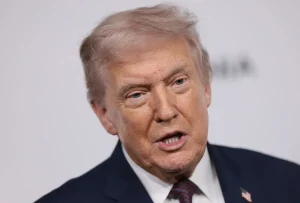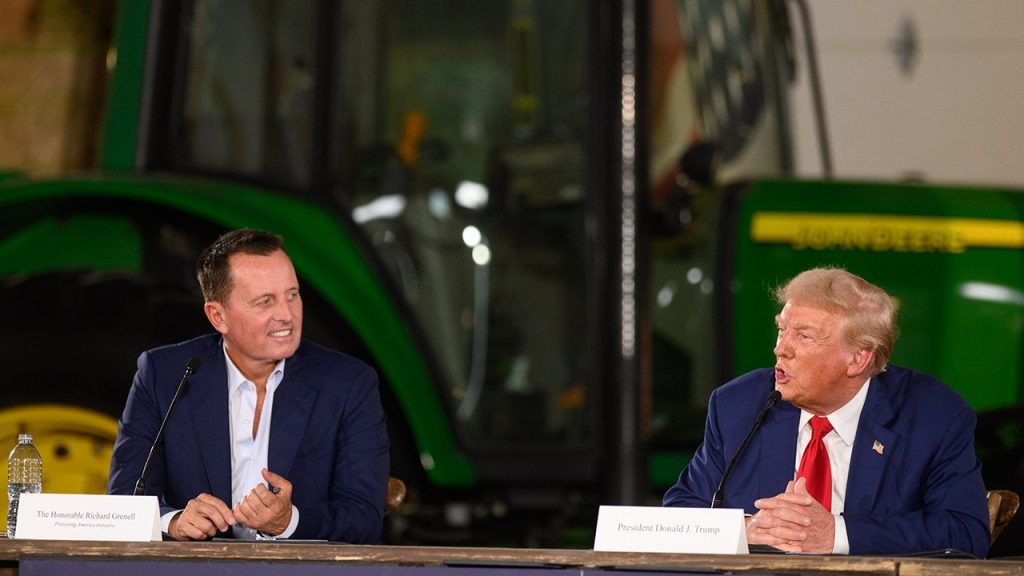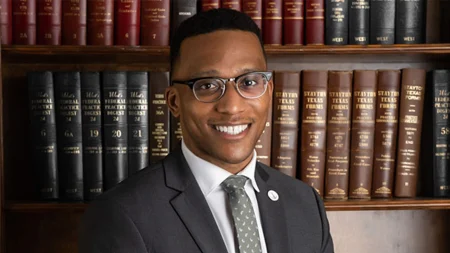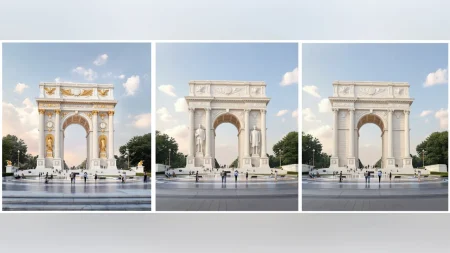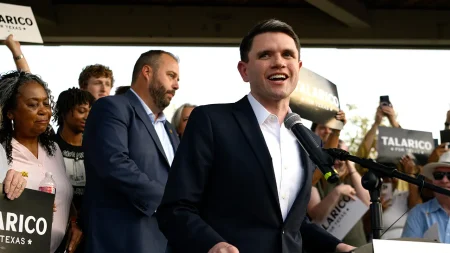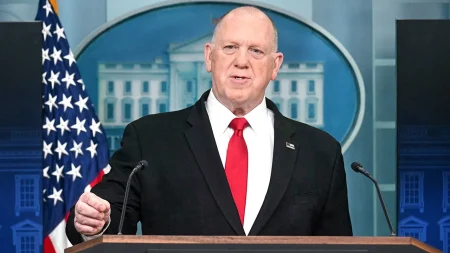Richard Grenell, a prominent figure in the Trump administration and a staunch supporter of the former president, has once again become the subject of speculation regarding a potential role in a future Trump cabinet. A recent Reuters report, citing anonymous sources, suggested that Grenell is under consideration for the position of special envoy to Iran, a role that would place him at the forefront of navigating the complex and often tense relationship between the United States and the Islamic Republic. This report, however, was swiftly denied by Grenell himself, who labeled it as “made up” and expressed his hope for journalistic integrity within Reuters. Trump’s response to the report, while not confirming or denying its veracity, offered enthusiastic praise for Grenell, referring to him as a “fabulous person” and “A STAR,” and hinting at a high-ranking position in a potential second Trump administration.
Grenell’s potential appointment as special envoy to Iran raises several important considerations. Firstly, it highlights the continuing influence he holds within Trump’s inner circle, demonstrating his sustained loyalty and unwavering support for the former president. Grenell served as Acting Director of National Intelligence under Trump, and has been a vocal advocate for his policies and political aspirations. Secondly, the possibility of Grenell taking on this specific role underscores the significance Trump places on the Iran issue. The position of special envoy would entail crafting and implementing a comprehensive Iran policy, a task fraught with challenges given the historical and ongoing tensions between the two nations. Finally, Grenell’s potential appointment speaks to the broader staffing strategy a second Trump administration might employ. His consideration, along with other loyalists, suggests a preference for individuals with demonstrated allegiance and a shared worldview.
The rumored appointment also reignites the discussion around the vetting and confirmation process for high-level government positions. Should Trump formally nominate Grenell, the Senate would be tasked with evaluating his qualifications and suitability for the role. This process would likely involve rigorous scrutiny of his past experiences, policy stances, and potential conflicts of interest. Given the politically charged environment, the confirmation process could become a battleground for partisan debate and potentially face significant opposition from Democrats. Furthermore, Grenell’s strong opinions and sometimes controversial statements could become a focal point of the confirmation hearings, raising questions about his ability to engage in diplomatic efforts and negotiate effectively with international counterparts.
The Reuters report, while unconfirmed by both Trump and Grenell, is not the first time Grenell’s name has been floated for a prominent position in a hypothetical second Trump administration. Prior to this, he was rumored to be a contender for Secretary of State and special envoy for the Russia-Ukraine conflict. These repeated mentions suggest that Grenell remains a key figure in Trump’s considerations for high-level appointments, reflecting a preference for individuals with established loyalty and a shared political vision. This pattern of considering loyalists for key positions raises questions about the potential for insularity within a second Trump administration and the impact it could have on policymaking and diplomatic efforts.
The special envoy position itself carries significant responsibilities. The individual appointed to this role would be responsible for developing, coordinating, and implementing the State Department’s Iran policy, a crucial aspect of U.S. foreign policy. This would involve navigating complex diplomatic relations, addressing issues related to Iran’s nuclear program, and managing regional security concerns. The special envoy would report directly to the Secretary of State, assuming Senate confirmation, placing them in a position of considerable influence within the State Department and the broader foreign policy apparatus. The effectiveness of the special envoy would depend on their ability to build consensus, navigate international relations, and implement policies that align with U.S. interests.
Finally, the uncertainty surrounding Grenell’s potential appointment highlights the fluidity of the transition process for a potential second Trump administration. While Trump has offered praise for Grenell and hinted at a high-ranking position, the lack of official confirmation leaves room for speculation and alternative scenarios. The potential appointment of Grenell, or any other individual, to a key position will ultimately depend on a variety of factors, including political considerations, internal deliberations, and the evolving geopolitical landscape. The ongoing discussions and speculation surrounding potential appointees offer a glimpse into the challenges and complexities of forming a new administration and the crucial role personnel decisions play in shaping policy and diplomatic efforts.
